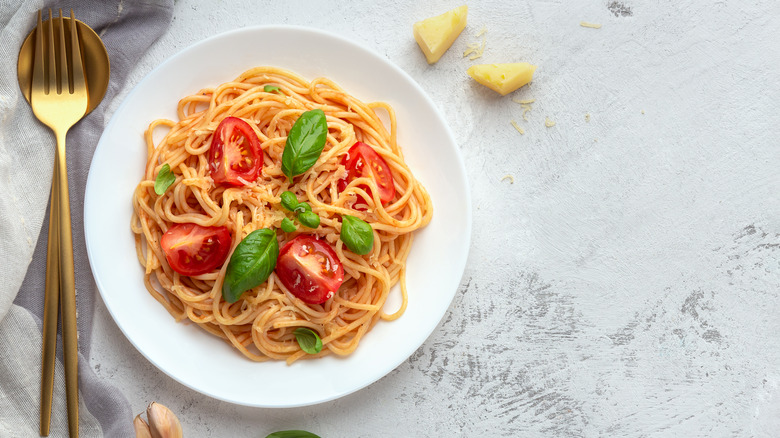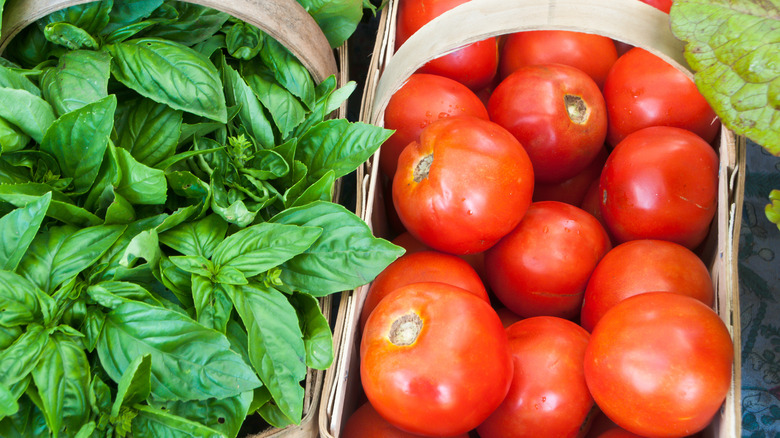The Easiest Pasta Sauce In Italy Doesn't Need To Be Cooked
Italian cuisine is known for its fresh ingredients and simple recipes, but there's one pasta sauce that may be even easier to make than the rest. While some sauces, like marinara or arrabbiata, are fairly straightforward and require few steps to whip up, there's one delicious tomato-based version that you don't even have to turn your stove on for. Enter checca sauce: a cold pasta sauce perfect for those hot summer days when you hardly want to cook.
A classic checca sauce requires good ingredients, but only a handful of them — you'll need cherry, grape, or full-size tomatoes, fresh basil, olive oil, salt, pepper, and garlic. To make it, combine all the ingredients either by chopping the tomatoes, mincing the garlic, and stirring everything together or by pulsing in a food processor. The key here is to then cover your bowl with plastic wrap and let it sit at room temperature for at least an hour. Since you're not cooking the sauce, you'll need a little time for all the flavors to mesh together. Then stir in your pasta (spaghetti or linguine is traditional), top with some Parmigiano Reggiano, and dig in.
Checca sauce for a refreshing pasta dish
Checca sauce, which originally came from Rome, doesn't just have to be used for pasta — you can also deploy it as a condiment with bread or a sauce for meat. Besides its temperature, checca differs from other pasta sauces in that it's not supposed to be completely smooth. Even if you use a food processor, make sure to stop pulsing while it's still a little chunky.
While your pasta will be piping hot right after it's cooked, you can pour it into the bowl with your sauce right away. Not only will the heat from the noodles soften the tomatoes and draw out their juices, but after a few minutes, the cold checca will cool off the pasta and you'll end up with a refreshing dish. However, if you want to add in small mozzarella balls like some recipes do, make sure everything has cooled completely first so you don't melt the cheese.
You can also incorporate a dash of red pepper flakes for some spice, some canned tuna for protein, or a sprinkle of Italian seasoning for an extra herby flavor. And make sure to save any leftovers. After all, the flavors become stronger the more the ingredients marinate.

